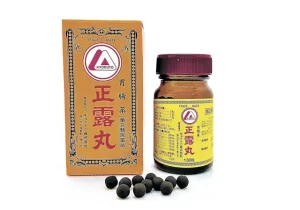Efficacy and safety of Retevmo in RET fusion-positive cancers
- Gut Bacteria Enzymes Offer Hope for ABO Universal Blood Transfusions
- Well-Known Japanese Medicine Exposed for 30 Years of Data Falsification
- Oregon Reverses Course: From Decriminalization to Recriminalization of Drug Possession
- Why Lecanemab’s Adoption Faces an Uphill Battle in US?
- Yogurt and High LDL Cholesterol: Can You Still Enjoy It?
- WHO Releases Global Influenza Vaccine Market Study in 2024
Efficacy and safety of Retevmo in RET fusion-positive cancers
Efficacy and safety of Retevmo in RET fusion-positive cancers. In a global, multi-center, registered trial, the efficacy and safety of Retevmo Selpercatinib in RET fusion-positive non-lung cancer/non-thyroid cancer patients (pts) were studied.
Introduction:
Retevmo Selpercatinib is a highly selective and potent RET kinase inhibitor, which has been approved for the treatment of RET fusion-positive lung cancer or thyroid cancer in many countries.
RET fusion is also related to the pathogenesis of other cancers. Therefore, in a global, multi-center, registered trial, the efficacy and safety of Retevmo Selpercatinib in RET fusion-positive non-lung cancer/non-thyroid cancer patients (pts) were studied.
Methods:
This analysis included adults with locally advanced or metastatic RET fusion-positive non-pulmonary/non-thyroid solid tumors participating in the Phase 1/2 LIBRETTO-001 clinical trial (NCT03157128) (Data deadline: March 19, 2021 ).
After the dose was increased, the patient received the recommended dose of 160 mg orally twice a day. The patients started with their first dose of the drug, and the follow-up time was sufficient for 6 months, including those whose efficacy could be evaluated.
The researcher evaluated the response (RECIST 1.1). The primary endpoint is the objective response rate (ORR). Secondary endpoints include duration of response (DoR), response time, and safety.
Results:
32 cases of non-lung cancer/non-thyroid cancer with RET fusion positive include 12 unique tumor types: 9 cases of pancreatic cancer, 9 cases of colon cancer, 2 cases of breast, saliva, sarcoma and 2 cases of unknown primary cancer, carcinoid, rectal neuroendocrine 1 case each, small intestine, yellow granuloma, ovarian and lung cancer sarcoma. The median age is 48 years (range 22-85).
Twenty-nine patients had received previous systemic therapy (midline previous level: 2, range 0-9). ORR was 47% (N = 15/32, 95% CI: 29-65). Objective responses were observed in 9 unique cancer types (including colon cancer, pancreatic cancer, carcinoid cancer, small bowel cancer, salivary gland cancer, granulomatous sarcoma, breast cancer, ovarian cancer and sarcoma), and the other 5 cases were stable and persistent Time ≥ 16 weeks.
The median response time was 1.9 months (range 0.7-7.3). The median DoR was not reached (median follow-up time was 13 months). 73% (11/15) of the patients had a continuous response. The safety of this population is consistent with the entire Retevmo Selpercatinib safety database. No patients in this cohort discontinued treatment due to treatment-related adverse events.
Conclusion:
Retevmo Selpercatinib has shown good antitumor activity in RET fusion-positive non-lung/non-thyroid cancers, including multiple refractory gastrointestinal malignancies.
An extensive genomic profile is essential to identify actionable oncogenic drivers, including RET fusion.
The ongoing LIBRETTO-001 study will continue to explore the safety and effectiveness of Retevmo Selpercatinib in these cancer patients.
(source:internet, reference only)
Disclaimer of medicaltrend.org



